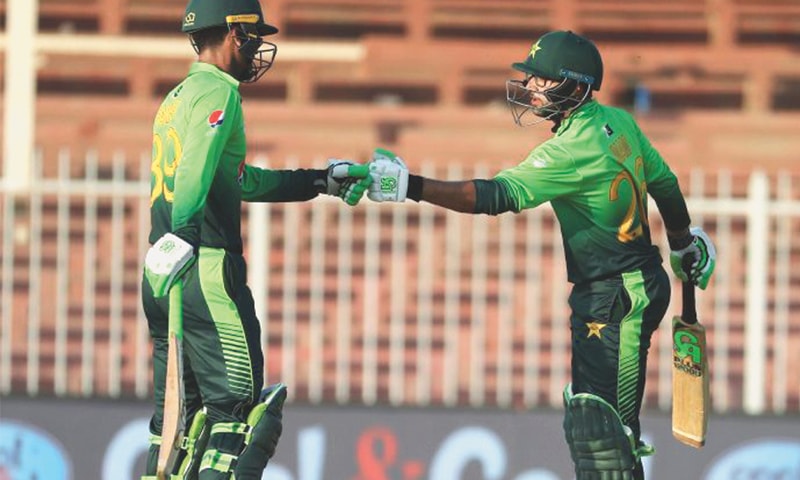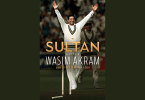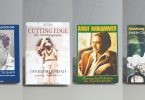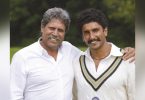Omair Alavi|Published August 5, 2018
Fakhar Zaman and Imam ul Haq
Good things come to those who wait and cricket fans in Pakistan had to wait a long time for a good opening pair that could score centuries.
Gone are the days when there was nobody to replace the likes of Mohammad Hafeez and Ahmed Shehzad who stayed at the top of the batting order despite their average record, especially when it mattered the most. However, with two young left-handers in the team as openers, Pakistan now has a dependable pair of batsmen at the top who can destroy any bowling attack anywhere in the world.
But let’s talk about the ‘other’ master blasters who came before centurions Fakhar Zaman and Imam ul Haq and made a name for Pakistan before the century drought hit the Green Shirts in One-Day Internationals (ODIs).
MAJID KHAN

Pakistan’s first ODI centurion Majid Khan seemed to have been specially made for ODI cricket since he liked to score his runs without wasting deliveries. It wasn’t surprising when he was the first to go past 100 runs in his second ODI against England at Nottingham in 1974. That was also Pakistan’s second ODI and the 14th since the inception of the format. It took him just 96 balls to score a ton with the help of 16 fours and a six. It was the same match in which he added 113 runs for the first wicket with Sadiq Mohammad and, until Saeed Anwar and Aamer Sohail arrived, they were considered the best opening pair produced by the country.
ZAHEER ABBAS

In an era when scoring a century was a rare occurrence, the ‘Asian Bradman’ Zaheer Abbas scored as many as three in consecutive innings to become the first batsman to do so. In December-January 1982/83, ‘Zed’ was in the form of his life as he hit visiting Indian bowlers for fours and sixes, scoring centuries in three successive innings. The record was later shared by many cricketers but was finally broken in 2015 by Sri Lankan batsman Kumar Sangakkara who scored four centuries in as many matches during the World Cup.
Inspired by Fakhar Zaman and Imam ul Haq’s 304-run partnership in the fourth ODI against Zimbabwe last month, Eos recalls Pakistan’s ODI centurions over the years
JAVED MIANDAD

‘Last ball, four runs required … and that’s a six!’ That was Javed Miandad for you, who scored centuries when it mattered the most. Any batsman with the last man on the other end and with four runs required in the final of the Australasia Cup against the World Champions would have panicked. But not Javed, who was batting on 110 not out off 113 deliveries and had hit just three fours and two sixes in the innings till then. The strongest supporter of singles and doubles pulled Indian bowler Chetan Sharma’s full-toss delivery out of the park and the rest is history!
RAMEEZ RAJA
Till the mid-1990s, Rameez Raja was the most prolific centurion for Pakistan in one-dayers although he crossed 100 on only nine occasions, which is nothing compared to modern day cricket. However, he was at ease scoring centuries in Australia and New Zealand and his World Cup ton against New Zealand in 1992 was instrumental in Pakistan’s qualification for the knock-out stage, which eventually won the World Cup for us. He also was the first batsman from Pakistan to score a World Cup hundred against the West Indies, that too on the bouncy tracks of Australia during the same tournament.
INZAMAM UL HAQ
And then there was Inzamam ul Haq, who was not only part of the 263-run world record partnership for the second wicket with Aamer Sohail in 1994 but who also became the highest scorer for Pakistan in the same match.
Incidentally, his left-handed partner was the first to break the then national record of 126 not out held by Shoaib Mohammad and ended his innings at 134. Inzi finished the match with an unbeaten 137 runs, ending a two-year century drought and added seven more to his tally, finishing with a total of 10 ODI hundreds, most of them in a winning battle. Add to it his 25 Test tons and he was, at one time, the highest century scorer for Pakistan in both forms, until Mohammad Yousuf overtook him a few years later.
SAEED ANWAR

Saeed Anwar can easily be dubbed as the best thing to happen in Pakistan cricket in the 1990s. Before Sanath Jayasuriya perfected the art of pinch-hitting, Saeed Anwar was providing explosive starts to Pakistan and instilled the belief in their hearts that, if others could do it, he could do it better. In his 14-year ODI career, the left-handed maestro crossed the three-figures on 20 occasions and was famous for scoring multiple consecutive centuries, something quite unheard of in those days.
In three consecutive matches in November-December 1993, Saeed Anwar demolished the West Indian and Sri Lankan bowlers and scored three centuries at Sharjah; the Kiwis and Sri Lankans were at the receiving end three years later at the same venue when he scored twin centuries in as many matches. He continued that trend in the World Cup in 1999 by thrashing the powerful Zimbabwe and Kiwi attack to all parts of the ground in successive matches to finish as the fifth highest scorer of the event.
Saeed Anwar’s moment of glory came in 1997 when he broke Viv Richards’ record of most runs in an ODI innings, ending at 194 runs off 146 deliveries, that too against archrivals India in India. Before Fakhar Zaman overtook him recently, Saeed Anwar held the national record for over 20 years!
SALEEM ELAHI
Not many players had scored a century on ODI debut in one-dayers when a relatively unknown Saleem Elahi accompanied Aamer Sohail to the crease against Sri Lanka in 1995. On that day, he became the fourth ever ODI cricketer to score a century on debut and helped Pakistan win the match in front of a packed Gujranwala stadium by nine wickets. He also added 156 runs for the first wicket before adding 78 unbeaten runs with skipper Rameez Raja. In 2002, he made a successful comeback to the national side and scored three centuries in four matches including an innings of 135 runs against South Africa at Port Elizabeth, smashing 19 fours off the likes of Allan Donald, Shaun Pollock, and Makhaya Ntini.
SHAHID AFRIDI

Speaking of fastest centuries, the name of Shahid Afridi crops up immediately because that’s what he was famous for. In his first ODI innings in October 1996, the 16-year-old unknown Pakhtun scored the world’s fastest century off just 37 balls against Sri Lanka, scoring a bulk of the runs on the bowling of Sanath Jayasuriya who held the previous record. In 2005 and in 2010, he smashed centuries off less than 53 deliveries against India and Bangladesh to earn the nickname ‘Boom Boom’, and is the only batsman in the top 10 list of quick centuries to feature twice.
MOHAMMAD YOUSUF

Ever since he hit Indian pacer Thiru Kumaran for a last-ball six in the Asia Cup 2000, Mohammad Yousuf (Yousuf Youhana formerly) didn’t look back. He managed to end his career (he hasn’t announced his retirement yet) with 15 ODI centuries in addition to 24 Test tons making him the most prolific centurion for Pakistan at the international level during his playing days. He could score runs in all kinds of conditions at a rapid rate and that’s what made him a threat for all the bowlers, be it from India, Australia, South Africa or Sri Lanka. Yousuf’s record of 39 international tons (combined) was broken by Younis Khan who scored 34 Test centuries and seven ODI ones to better the record by two centuries.
BABAR AZAM

Although he is just 23 years old, Babar Azam in his short career has scored more ODI centuries than Zaheer Abbas, Younis Khan, Ahmed Shehzad, Shahid Afridi and Saleem Malik. He scored his eighth ton in his 46th match last week and is on track to become one of the fastest to reach 2000 runs in ODIs. It took him 15 matches to score his first 100 but that was followed by two more in the next two matches, making it three out of 17.
The classy batsman added one more during his trip to Australia and followed it with another three-figure knock in the Caribbean. Last year, he smashed Sri Lankan bowlers in Dubai and Abu Dhabi for two more hundreds and ended the year with seven tons. With his eighth century recently, he joins the league of Javed Miandad and Salman Butt while being on eighth position when it comes to Pakistani centurions.
Fakhar Zaman and Imam ul Haq have given hope to the followers of the game that in the current era, when centuries matter, they can deliver the good stuff for their country.
FAKHAR ZAMAN AND IMAM UL HAQ
They might be new to the cricket arena but Fakhar Zaman and Imam ul Haq should be termed as saviors of Pakistan cricket. They have given hope to the followers of the game that in the current era, when centuries matter, they can deliver the good stuff for their country.
Fakhar Zaman first appeared on the scene during the Champions Trophy last year and helped Pakistan win the event by scoring a timely century in the grand finale against India. He added two more tons to his statistics on the recently concluded tour of Zimbabwe, with the third one being a double century, the first by a Pakistani. He not only broke Saeed Anwar’s record but also ended the series with 515 runs which is now a world record for a five-match series.
In the last match against Zimbabwe, he broke the record of quickest to 1,000 runs (held by many including Viv Richards and Babar Azam) and no one has scored it in 18 matches except the left-hander from Mardan. His partner at the top, Imam ul Haq has become the first batsman ever to score four centuries in his first nine matches (England’s Dennis Amiss had three in first 10). In fact, whenever Imam ul Haq has passed 50 in his short career, he has crossed 100, which shows that he is one for the future.
The writer tweets @Omair78
Published in Dawn, EOS, August 5th, 2018







